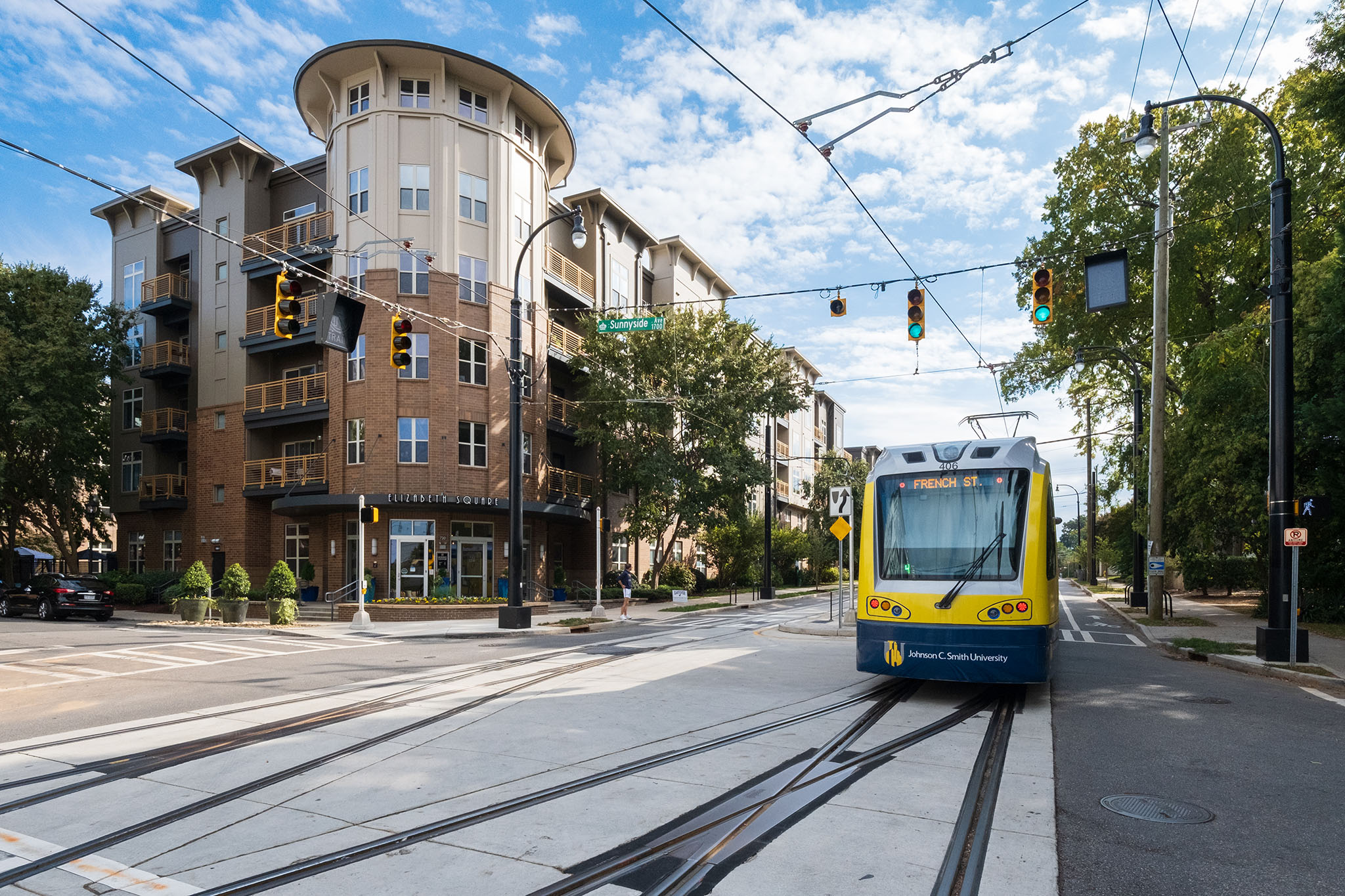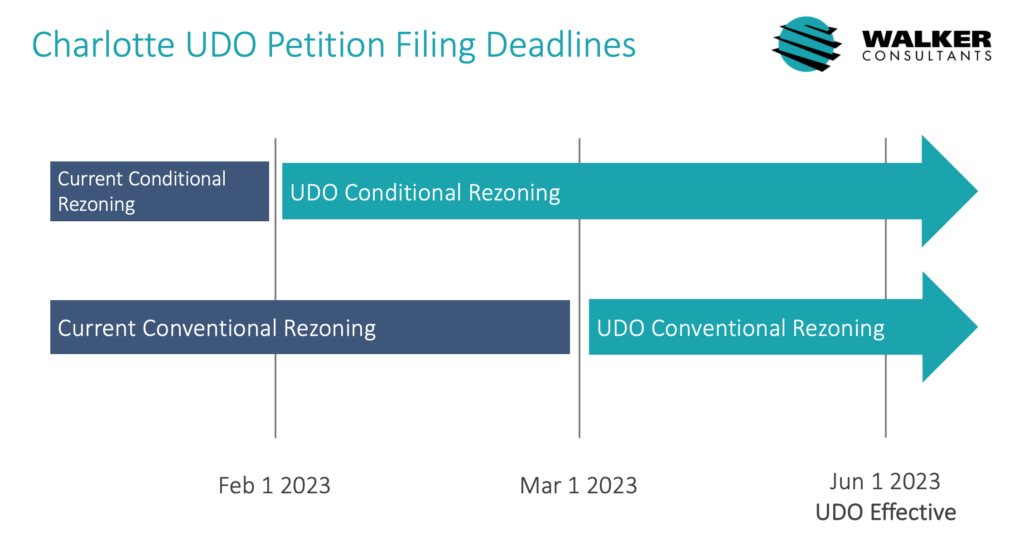April 2024 Update
How Has the UDO Affected You?
How has the new UDO affected your projects? Are there any suggested improvements or edits that you would like to provide the City for consideration? If so, the Real Estate and Building Industry Coalition has a Change Request form you can download and fill out. Completed forms can be sent directly to the City of Charlotte Planning Department.
The UDO is intended to be a living document and the City wants your feedback whether it is to clarify an item, identify unintended consequences, or provide feedback on policy matters. This is your opportunity to contribute and make a difference!
(The original post from November 2022 is below.)
The Charlotte City Council adopted the City’s first ever Unified Development Ordinance (UDO) in August 2022 and it will become effective June 1, 2023.
A Unified Development Ordinance is a planning tool that combines multiple city ordinances and codes into one clear and user-friendly document. This consolidates and organizes the permitting and approval process by improving consistency and removing obsolete protocols.
The Charlotte UDO combines eight separate development ordinances, including zoning, into one comprehensive set of regulations and supports other City policies, including the Charlotte Future 2040 Comprehensive Plan.
The full, 643-page Charlotte UDO is available for download here. Following are a few key takeaways to help you understand how the UDO will affect you and the zoning process.
Conventional Zoning and Rezoning
The Charlotte UDO institutes new zoning districts with the City. The existing, or “Conventional Zoning Districts,” will translate to new UDO Zoning Districts when the UDO becomes effective next June. This will consolidate the number of districts from 34 to 21. You can explore the UDO Translation Map and Tables here.
Conditional Zoning and Rezoning
Existing conditional zoning districts (those in which the City allows a change in zoning activities) will not translate in the new Charlotte UDO, but will be considered for alignment zoning after June 1, 2023, during a community area planning process. Be on the lookout for community engagement opportunities to provide your feedback on conditional rezoning. Conditional zoning approved under current and pre-UDO zoning regulations will use current and pre-UDO land development regulations during permitting processes.
Petitions and Important Dates
A zoning petition can be submitted for a conventional or a conditional district. Conventional rezoning petitions will translate to UDO Zoning Districts June 1, 2023. Petitions for current conventional rezoning or pre-UDO regulations must be filed before March 1, 2023. Conventional rezoning petitions to new UDO districts may start to be filed March 1, 2023.
Conditional rezoning petitions for current and pre-UDO regulations must be filed before February 1, 2023. Approval of Conditional rezoning petitions may be approved before or after June 1, 2023 and must be approved before March 1, 2024.
Conditional rezoning petitions to UDO districts may start to be filed February 1, 2023. Lastly, petitions to UDO districts will be processed in order they were submitted beginning June 1, 2023.
| Date | Milestone |
| August 2022 | UDO Approved |
| January 31, 2023 | Deadline to file current Conditional Rezoning/pre-UDO regulations petitions |
| February 1, 2023 | New Conditional Rezoning petitions acceptance begins |
| March 1, 2023 | Deadline to file current Conventional Rezoning/pre-UDO regulations petitions; New Conventional Rezoning petitions acceptance begins |
| June 1, 2023 | UDO takes effect; Conventional Zoning Districts Translate |
| March 1, 2024 | Deadline for approval of Conditional Rezoning/pre-UDO regulations petitions |
(Petitions to UDO Districts will be processed in the order received.)
What Does this Mean for You?
This is an important yet relatively difficult question to answer. For most, particularly those with property in the middle of an existing subdivision, the new changes will have minimal impact, if any. For those with property adjacent to commercial or vacant land, the UDO could bring some changes in development patterns. Specifically for commercial and industrial property owners, the UDO increases flexibility in how to develop/redevelop property.
How Can Walker Help You?
Walker Consultants provides planning, design, engineering, forensics, restoration, and consulting for the built environment.
If you’re working on a new development in Charlotte, we can help you right-size your parking to meet your needs. We literally wrote the book on shared parking, and our models take into account the changing needs of different users at different times of day in mixed-use developments.
Our engineers and functional designers can craft a top-tier parking experience for your development, whether it’s structured or a surface lot. Our operations and technology experts will ensure your tenants and customers have a hassle-free experience, and that you have the right tools to manage revenue and expenses. Plus, we’ll make sure you’re prepared to handle the EV charging needs of today and tomorrow.
Our experience with restoration will also help you save money on maintenance in the long run. Our asset management plans give you the tools you need to properly budget and stay ahead of necessary upkeep.
Contact us today for a friendly chat about how Walker Consultants can help.


